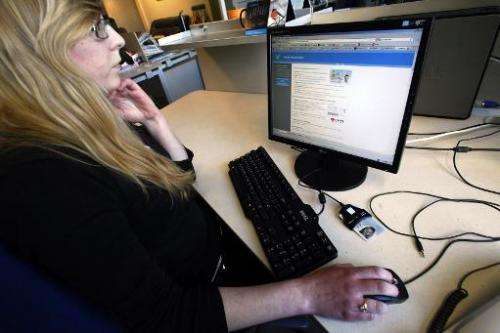IT experts urge E-stonia to drop Internet voting

A team of global IT experts on Tuesday urged cyber-savvy Estonia to drop electronic voting from this month's European elections, saying they had identified major security risks.
"Estonia's Internet voting system blindly trusts the election servers and the voters' computers," said US computer scientist J. Alex Halderman, a co-author of the report released Tuesday.
"Either of these would be an attractive target for state-level attackers, such as Russia."
But the Estonian electoral commission said it regularly updates the e-voting system.
"We have carried out public test votings and we have given experts a chance to attack the test system, which is similar to the real e-voting system," commission spokeswoman Kristi Kirsberg told AFP.
"We are convinced the system is safe," she said, less than two weeks before the May 25 elections to the European parliament.
Estonian Internet expert Linnar Viik added that the country's six e-votes to date have gone off without any security incidents.
"The possible attacks are under control and attacks just can't happen," the Estonian IT College lecturer told AFP.
Dubbed E-stonia, the ex-Soviet Baltic nation of just 1.3 million people has made a name for itself for being a trailblazer in technology, notably pioneered e-voting in 2005 and playing host to NATO's cyber defence centre.
Other countries including France and the United States have also experimented with voting by mouseclick.
At the last European parliament vote, in 2009, around 58,000 Estonians—or 15 percent of turnout—went online for the ballot.
But the six IT experts now warn that the system's operational security is lax, transparency measures are insufficient and the software design is vulnerable to cyber attacks.
They came to the conclusion after observing Estonian e-voting operations at last year's municipal elections, then carrying out a security analysis and laboratory testing.
"We never thought we'd see as many problems and vulnerabilities as we did," said report co-author Jason Kitcat, an adviser for the Open Rights Group that defends Internet freedoms.
"We feel duty-bound to make the public aware of those problems."
The report can be found at:
© 2014 AFP



















